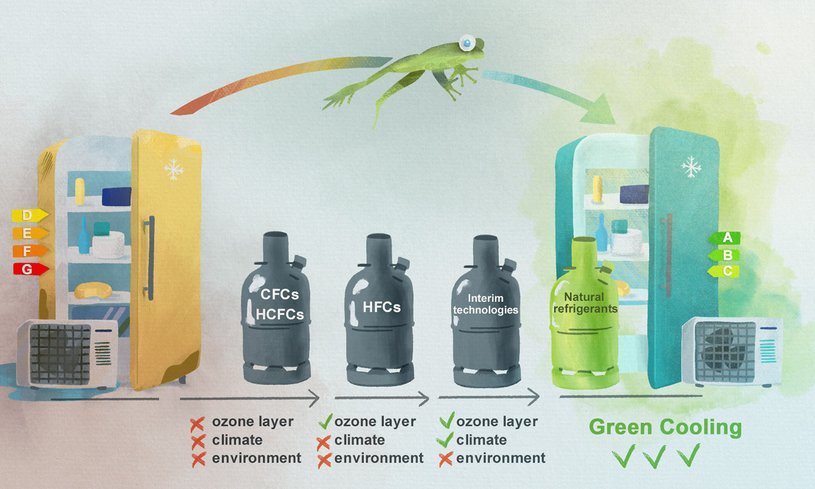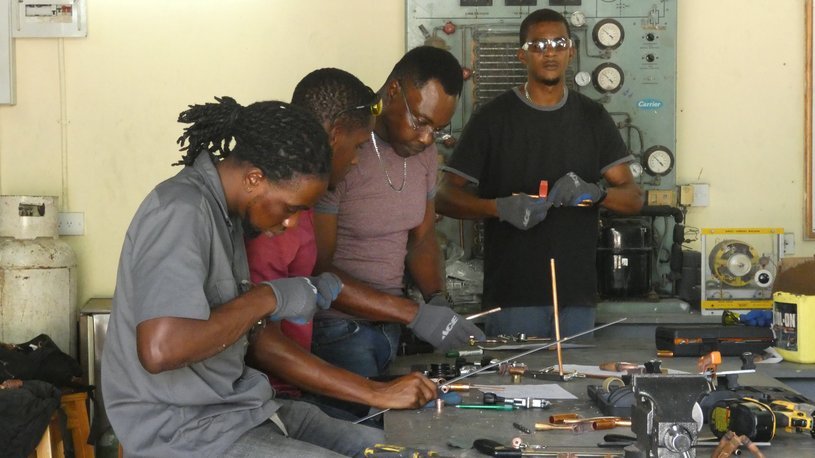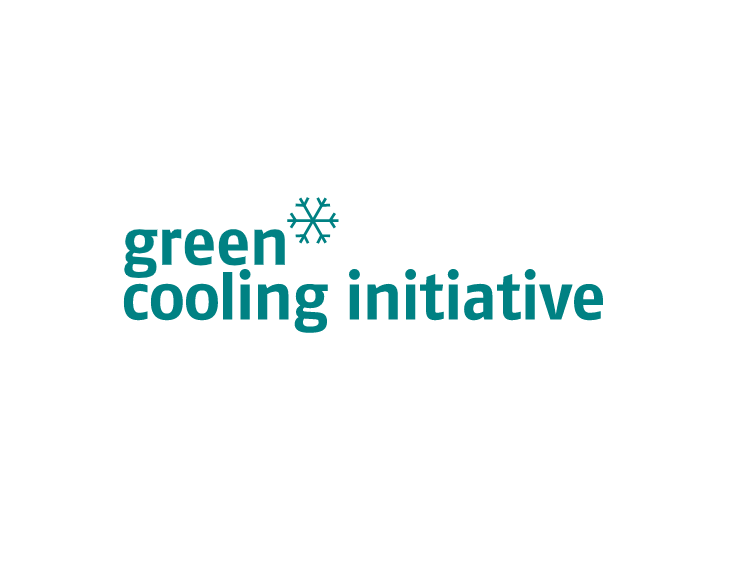Proklima – Promoting Green Cooling since 1995
The demand for cooling has been increasing for decades. According to estimates, 10 new air conditioning units will be sold every second over the next 30 years and around 10 percent of the world's electricity is already used for cooling and air conditioning – and the trend is rising. Many of the devices contain refrigerants that are harmful to the ozone layer and that have a high global warming potential.
The so called GIZ project "Proklima – integrated climate and ozone protection(opens in a new window)" has been working on this topic since 1995 within the framework of the Montreal Protokoll. The project is commissioned by the German Federal Ministry for Economic Cooperation and Development (BMZ) and implemented by the German Corporation for International Cooperation (GIZ).
Dr. Heike Litzinger, head of BMZ’s division 423, comments: “With Proklima, we have been making important contributions to the protection of the ozone layer and of our climate since 1995. However, much remains to be done in order to support the transition to sustainable cooling. Therefore, we are pleased to continue our work in the new project phase.”
Since its start, Proklima has been promoting an integrated approach that protects the ozone layer and prevents global warming at the same time – long before the Kigali Amendment was adopted in 2016. Proklima does not support the use of ozone and/or climate-damaging substances, such as CFCs, HCFCs and HFCs, but rather promotes the transition to Green Cooling in one step – ‘Leapfrogging’.This relies on a technology that complies with increasingly stringent legal regulations from the outset. And, more importantly, it protects the environment – and therefore livelihoods worldwide.
Proklima: different levels, fruitful synergies
The sector project Proklima works on different levels:
At the policy level, a team of consultants supports the German Government regarding all topics concerning the Montreal Protocol. They participate in the elaboration of safety and health standards, norms and laws.
At the level of capacity building, Proklima offers “Cool Trainings”, where technicians from partner countries can learn how to work with natural refrigerants. More than 550.000 refrigeration technicians have been trained worldwide so far.
At the technical level, Proklima implements pilot projects. One example: It developed a hydrocarbon air conditioner production facility in cooperation with the Chinese manufacturer Gree in 2011.
In addition, Proklima has always been closely working together with the projects that Germany implements within the Multilateral Fund for the Implementation of the Montreal Protocol (MLF). Since 2008, Proklima is complemented by several projects funded by the Federal Ministry for the Environment, Nature Conservation and Nuclear Safety (BMU). By using their synergies, the projects implement pilot activities in partner countries, accompany the technology transfer to Green Cooling and advise on the financing. They convince by demonstrating new technologies, imparting knowledge, and training experts.Green technology in refrigerators – a success story
Thanks to Proklima, its international partners, Greenpeace and other stakeholders who work on the topic of Green Cooling, decisive progress could be achieved since the adoption of the Montreal Protocol. This is particularly true for refrigerators:
Greenpeace started promoting environmentally friendly technology for refrigerators in Germany in the late 1980s. Even though many companies refused to take action for a long time, the German refrigeration industry slowly started to change during the 1990s. The global diffusion was further promoted by the large-scale German engagement of BMZ and BMU in international cooperation projects implemented by Proklima. Today, more than 60% of refrigerators globally run with natural hydrocarbons such as propane or butane.
We are now facing similar challenges with the transition to Green Cooling in other areas of the sector such as air conditioning and industrial cooling. Proklima’s new project phase consequently focuses on these topics. Other important issues are energy efficiency and the use of renewable energies. The successful transition to “green” refrigerators shows that change is possible!
Using its more than 25 years of experience, Proklima will thus continue to provide policy advice, to advocate for natural refrigerants, to build capacities, and to provide practical examples of how Green Cooling works.


